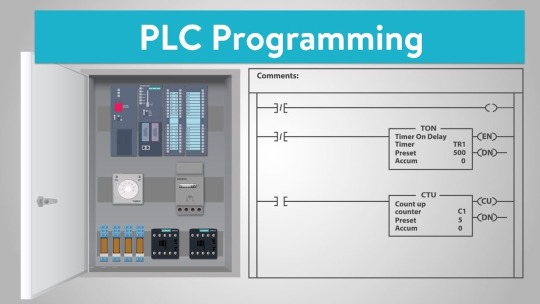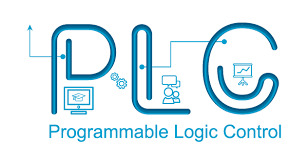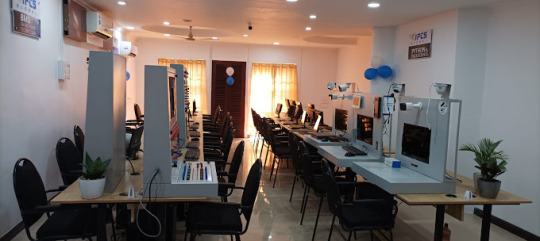#Certificate course in plc programming
Explore tagged Tumblr posts
Text
Title: "Unlocking Tomorrow: Celestial Learning's Robotics and Automation Courses Illuminate Pune's Future"
#basic and advance plc programming courses#plc programming courses in pune#certificate course in plc programming#advanced plc programming courses#plc programming courses
0 notes
Text

In automation industry SIEMENS PLC’s have the highest proliferation in Europe and Allen Bradley is mostly used in the US. But an equally strong brand in PLC domain is Mitsubishi Electric Japan. Different brand of PLCs have their own advantages and limitations. Celestial learning provide one of the best Basic and Advance plc programming courses.
Visit us https://celestiallearning.com/courses/plc-programming-course-mitsubishi-advance-level/
#Basic and Advance plc programming courses#Certificate course in plc programming#PLC Programming Courses in Pune
0 notes
Text
UEE40420 Certificate IV in Electrical Instrumentation – Improve your Skills as a Certified Electrician
Looking beyond the basics, the Electrical Instrumentation course delves into advanced concepts crucial for thriving in today's dynamic industrial landscape. Participants explore cutting-edge technologies, such as advanced PLC programming techniques and the integration of smart sensors for enhanced process control and optimization.

Moreover, the course emphasizes industry best practices in safety protocols and regulatory compliance, ensuring that graduates are well-equipped to navigate complex work environments with confidence and proficiency.
Why choose the Instrumentation course?
What sets PMV's training apart is its commitment to providing a truly immersive learning experience. The state-of-the-art training centers in Perth, Karratha, and Adelaide boast fully equipped instrumentation and control skids that replicate real-world industrial settings. This hands-on approach allows students to gain practical experience in a safe and controlled environment, preparing them to tackle the challenges of the field head-on.
In addition to technical skills, the course also emphasizes soft skills development, such as communication, teamwork, and problem-solving. These skills are invaluable for success in the field, where collaboration and adaptability are often as critical as technical expertise. Contact PMV for Instrumentation and Control Courses
Furthermore, PMV's industry-aligned curriculum ensures that graduates are not only technically proficient but also familiar with the latest industry standards and practices. This alignment with industry requirements enhances the employability of graduates, making them highly sought after by employers across various sectors.
Whether you're a seasoned professional looking to upskill or a newcomer to the field seeking to kickstart your career, the UEE40420 Certificate IV in Electrical Instrumentation at PMV offers a comprehensive and practical learning experience that sets you up for success in the exciting and rewarding field of instrumentation and control.
Read More:
1. What are the key components of nationally accredited training in hazardous area classification and design?2. What specific qualifications are necessary for someone to be considered competent in high voltage switching?3. What are the top 10 common mistakes that individuals should avoid when setting up solar grid-connected systems?4. What are some common types of hazardous area equipment, and how are they typically utilized in industrial settings?5. What are the key requirements and procedures for conducting an EEHA audit and ensuring compliance with AS/NZS 3000:2018 standards?
CONTACT US:
Website: https://www.pmv.net.au/
Email: [email protected]
Perth
10/22 Shields Crescent, Booragoon, WA, 6154 Contact no.: (08) 9317 2146
Adelaide
1042 Port Road, Albert Park, SA, 5014 Contact no.: (08) 9317 2147
Karratha
Unit 48, 5-15 Sharpe Ave, Karratha WA, 6714 Contact no.: (08) 9317 2147
Also, follow us:
Youtube: https://www.youtube.com/@PmvNetAu/
Facebook: https://www.facebook.com/pmvaustralia/
Instagram: https://www.instagram.com/pmv.australia/
#pmv training#pmv#Electrical Instrumentation#uee40420#advanced PLC programming#instrumentation courses perth#electrical instrumentation course#certificate iv in instrumentation
0 notes
Text
The Basics of PLC Programming: A Comprehensive Guide

If you're interested in the field of industrial automation or looking to enhance your skills in the industry, PLC programming is a crucial skill to possess. Programmable Logic Controllers (PLCs) are widely used in manufacturing and process control systems, and understanding how to program them is essential for ensuring efficient and reliable operation.
In this comprehensive guide, we will explore the basics of PLC programming, covering key concepts and providing valuable insights for beginners in the field.
1. What is PLC Programming?
PLC programming involves creating a set of instructions that control the behavior of a programmable logic controller. PLCs are used to monitor inputs from various sensors, process that data, and execute specific actions based on pre-defined logic. By programming a PLC, you can automate complex industrial processes, making them more efficient and reliable.
2. Why Learn PLC Programming?
PLC programming offers numerous benefits in the industrial automation realm. By acquiring this skill, you can:
Improve productivity: PLCs enable automation, reducing manual labor and increasing overall productivity.
Enhance efficiency: Automation minimizes human error and optimizes processes, resulting in higher efficiency levels.
Facilitate troubleshooting: Understanding PLC programming allows you to diagnose and fix issues efficiently, minimizing downtime.
Expand career opportunities: PLC programming expertise is in high demand, with many industries seeking professionals with these skills.
3. PLC Programming Training Courses:
To learn PLC programming effectively, it's essential to enroll in specialized training courses. These courses provide a structured curriculum, hands-on exercises, and expert guidance. Here are a few key aspects to consider when choosing a PLC programming training institute or center:
Comprehensive curriculum: Look for a training program that covers both theoretical concepts and practical implementation.
Experienced instructors: Ensure that the training institute has qualified instructors with industry experience to guide you effectively.
Hands-on practice: Practical exercises and projects are crucial for gaining proficiency in PLC programming.
Industry relevance: Verify that the training course aligns with current industry standards and practices.
Certification: Opt for courses that offer certifications upon completion, as they enhance your credibility in the job market.

4. Key Concepts in PLC Programming:
Ladder Logic: Ladder Logic is the most commonly used programming language for PLCs. It employs graphical symbols to represent logic functions and control sequences, making it easy to understand and implement.
Inputs and Outputs: PLCs interact with the physical world through inputs (sensors) and outputs (actuators). Understanding how to read inputs and control outputs is fundamental in PLC programming.
Programming Instructions: PLCs execute a set of instructions to perform desired operations. These instructions can include timers, counters, mathematical operations, logic gates, and more.
Program Execution: PLC programs are executed in a cyclical manner. The PLC scans inputs, processes logic, updates outputs, and repeats the cycle continuously.
5. Programming Tools and Software:
PLC programming software provides an interface to create, edit, and debug programs. Familiarize yourself with popular software tools such as Siemens TIA Portal, Allen-Bradley RSLogix, or Schneider Electric Unity Pro, as they are widely used in the industry.
Conclusion:
PLC programming is an essential skill for individuals aspiring to succeed in the field of industrial automation. By learning the basics of PLC programming, you open up a world of opportunities to streamline processes, enhance productivity, and contribute to the advancement of various industries. Enroll in a reputable PLC programming training institute or center, explore the key concepts, and start your journey towards becoming a proficient PLC programmer.
#plc-programming#learn plc programming#plc programming training#plc programming courses#plc training course in india
3 notes
·
View notes
Text
Best PLC Training Institute In Pune
Welcome to Perfecto Robotics Institute, we provide the Best PLC Training In Pune. Our institute has very advanced courses along with the most modern facilities. We do cater to any of your requirements. You might be a fresher or an old-time professional; our institute will give you what you want.
Firstly, Perfecto Robotics Institute offers training led by industry experts.
Students actively participate in practical exercises, which develop a thorough understanding of PLC systems. Additionally, our instructors emphasize real-world applications, preparing graduates for the challenges of various technological environments.
What Is PLC Training?
Prepares technicians to take full advantage of vendor training on specific equipment. We cover the basic operating principles of all PLCs, their inputs and outputs, programming, maintenance, and networking. This course has no prerequisites.
What is PLC?
PLC is the abbreviated form of Programmable Logic Control.
PLC is an industrialized computer, which is in charge of control functions of different sorts, beginning with the inputs, outputs, and central processing units.
What are examples of PLCs?
ManufacturingOil and GasAutomotiveFood and BeverageUtilitiesBuilding AutomationPharmaceuticals
What are the main components of PLC?
CPU (Central Processing Unit)Input / Output (I/O) ModulesPower SupplyMemoryProgramming Terminal or ComputerCommunication PortsExpansion Modules
Why is PLC used?
Increased dependabilitySafetyReal-time TrackingAble to work 365 days a year 24/7RepeatabilityReduced energy consumptionSpace requirements are reduced.increased user experience flexibilityYou can handle various devices at the same time.Increased machine connectivity and procedure automationManufacturing processes will be increased.Reduced operational costs.
Additionally, PLC services include troubleshooting and repair. In the event of a malfunction or malfunction, skilled technicians diagnose the problem, as well as replace the faulty component if necessary. PLC services also include immediately restoring PLC functionality to minimize production disruptions.
In conclusion, for the Best PLC Training Institute In Pune, Perfecto Robotics Institute is the best choice. With our expertise, dedication, and emphasis on quality and transparency, we guarantee solutions that exceed your expectations. Contact us today to discuss your PLC needs and discover why Perfecto Robotics Institute is the perfect choice for your requirements.
0 notes
Text
45 Days Industrial Training in Jalandhar: A Step Towards Career Growth

Industrial training plays a crucial role in bridging the gap between academic knowledge and real-world application. For students pursuing engineering, management, or IT-related fields, a 45-day industrial training program offers hands-on experience and insights into industry standards. Jalandhar, a prominent industrial hub in Punjab, provides excellent opportunities for aspiring professionals to gain practical knowledge and enhance their skills.
Why Choose Jalandhar for Industrial Training?
Jalandhar is home to a wide range of industries, including manufacturing, IT, textiles, and sports goods. With numerous companies and training institutes offering specialized programs, students can choose from a variety of fields to suit their career aspirations. The city’s industrial landscape ensures that trainees gain exposure to real-time projects, advanced technologies, and industry best practices.
Key Benefits of 45 Days Industrial Training
1. Hands-on Learning Experience
The training provides students with practical exposure to industrial processes, helping them understand how theoretical concepts are implemented in real-world scenarios.
2. Skill Enhancement
Through live projects and hands-on assignments, students develop technical skills in areas like programming, mechanical engineering, networking, digital marketing, and automation.
3. Industry Exposure
Working in an industrial environment allows trainees to familiarize themselves with industry norms, workflow, and corporate culture, which helps in career readiness.
4. Expert Guidance
Most training programs are conducted by industry experts who provide mentorship and valuable insights, helping students build strong foundational knowledge.
5. Certification and Career Opportunities
A recognized certification after completion of training enhances employability. Many students also receive job offers or internship opportunities based on their performance during training.
Popular Fields for Industrial Training in Jalandhar
Information Technology (IT): Web Development, Mobile App Development, Data Science, Machine Learning, Cyber Security
Mechanical & Civil Engineering: CAD/CAM, 3D Printing, Structural Design, AutoCAD
Electronics & Electrical Engineering: Embedded Systems, PLC/SCADA, IoT
Digital Marketing: SEO, Social Media Marketing, PPC, Content Marketing
Manufacturing & Production: Quality Control, Supply Chain Management, Product Designing
How to Choose the Right Training Institute?
With numerous training centers available, selecting the right one is essential. Consider the following factors:
Accreditation & Recognition: Ensure the institute is recognized by relevant industry bodies.
Course Curriculum: Check if the syllabus is updated with the latest technologies.
Experienced Trainers: Trainers should have industry experience.
Placement Assistance: Opt for institutes that provide job support and internships.
Hands-on Projects: Practical exposure should be a key component of the training.
Top Training Institutes in Jalandhar
Several reputed institutes offer industrial training programs in Jalandhar, such as:
Tech Learning Solutions — Specializes in IT and software development.
CETPA Infotech — Offers training in emerging technologies like AI, IoT, and automation.
Netmax Technologies — Best for networking and cloud computing courses.
WebHopers Academy — Provides digital marketing and web development training.
ThinkNEXT Technologies — Known for diverse training modules in engineering and management.
Conclusion
A 45-day industrial training in Jalandhar is an excellent opportunity for students to acquire practical knowledge and boost their career prospects. By choosing the right institute and program, students can gain valuable industry experience, build their professional network, and enhance their technical skills. If you are looking to gain an edge in your career, enrolling in an industrial training program in Jalandhar could be your first step towards success.
Have Questions?
If you’re looking for guidance on choosing the best industrial training program in Jalandhar, feel free to reach out to training institutes or professionals in your field. Happy learning!
#College Project Service in Jalandhar#AWS Training in Jalandhar#Full Stack Java Development Course in Jalandhar#MEAN Developer Course in Jalandhar#Video Editing Course in Jalandhar
0 notes
Text
Top MEP Certifications That Can Boost Your Skills and Salary
Mechanical, Electrical, and Plumbing (MEP) engineering is a crucial field in the construction and infrastructure industry. With rapid urbanization and technological advancements, the demand for skilled MEP professionals is higher than ever. If you're looking to enhance your expertise and increase your earning potential, obtaining the right certifications can make a significant difference. Whether you're a beginner or an experienced engineer, enrolling in an MEP course in Kochi can help you stand out in the competitive job market.
Why MEP Certifications Matter?
Certifications validate your skills and knowledge, making you a more desirable candidate for employers. They also equip you with industry-relevant expertise, ensuring that you stay updated with the latest advancements in MEP systems and technologies.
Top MEP Certifications to Consider
1. Certified MEP Professional (CMP)
This certification is ideal for engineers and technicians looking to specialize in MEP design, installation, and maintenance. It covers critical aspects such as HVAC, plumbing, and electrical systems.
2. HVAC Design & Drafting Certification
A specialized course that focuses on heating, ventilation, and air conditioning (HVAC) systems. It is highly recommended for those who want to master HVAC design and energy-efficient solutions.
3. Plumbing Design Certification
This certification enhances your knowledge of plumbing systems, including water supply, drainage, and sanitation. It is essential for those looking to work in commercial and residential plumbing projects.
4. Firefighting System Design Certification
With increasing safety regulations, expertise in firefighting systems is crucial. This certification covers fire suppression systems, alarm systems, and emergency evacuation planning.
5. Building Information Modeling (BIM) for MEP
BIM is transforming the construction industry by improving coordination and reducing project costs. Learning BIM for MEP can significantly boost your career prospects.
The Role of Industrial Automation in MEP
Incorporating automation in MEP systems improves efficiency and reduces human error. If you want to expand your expertise, consider enrolling in an industrial automation course in Kerala. This will provide you with essential knowledge of PLC programming, SCADA systems, and automated control systems, which are becoming increasingly relevant in modern MEP projects.
Conclusion
Investing in MEP certifications is a smart move for anyone looking to advance their career and increase their earning potential. Whether you choose an MEP course in Kochi or an industrial automation course in Kerala, gaining additional skills will set you apart in this competitive field. Start your journey today and take your career to new heights!
0 notes
Text
Unlock Your Future with IPCS
At IPCS , we are committed to transforming careers and empowering individuals to excel in the competitive professional landscape. Renowned for our specialized training programs in Automation, Python, Digital Marketing, and other cutting-edge fields, IPCS is the preferred destination for students and professionals seeking unparalleled learning experiences.
Why Choose IPCS?
Comprehensive Training Programs
Our meticulously designed courses cover both foundational concepts and advanced techniques, ensuring learners are industry-ready.
Hands-on sessions and real-world projects enable participants to master practical applications.
Experienced Faculty
Our trainers are seasoned professionals with years of industry expertise. They bring practical insights and updated knowledge to every session, helping learners stay ahead in their careers.
State-of-the-Art Infrastructure
At IPCS, we believe in learning by doing. Our fully equipped labs and modern facilities provide the perfect environment for innovation and experimentation.
Industry Partnerships
Collaborations with leading companies ensure our curriculum is aligned with current market demands, increasing the employability of our students.
Certification and Placement Support
Earn globally recognized certifications that validate your expertise.
Benefit from our dedicated placement cell that connects you with top employers in your field.
Courses We Offer
Automation: From PLC and SCADA systems to IoT integration, our automation courses equip learners to drive efficiency and innovation in industries.
Python Programming: Learn one of the world’s most versatile programming languages and explore its applications in web development, data analysis, AI, and more.
Digital Marketing: Master the art of online branding, SEO, social media strategies, and analytics to thrive in the digital age.
Additional Courses: IPCS offers a range of other courses in cutting-edge technologies such as AI, robotics, and cybersecurity.
Our Achievements
Trained thousands of students and professionals across various domains.
Proud alumni placed in leading global organizations.
Multiple accolades for excellence in education and training.
Join Us and Redefine Your Career
Whether you’re a student exploring your passions or a professional looking to upskill, IPCS is your trusted partner in success. Our commitment to excellence and innovation ensures that every learner reaches their fullest potential.
Visit us today and take the first step toward your dream career!
For more details, reach out to us at:
Website: https://ipcsglobal.com/
Email: [email protected]
Phone: +91 98467 70771
Follow us on social media for the latest updates and success stories!
0 notes
Text
ipcs global
Empowering Careers in Automation and Beyond: IPCS Global, Kollam
As the world swiftly advances in technology, the demand for specialized training in automation, embedded systems, building management systems, and industrial robotics has skyrocketed. IPCS Global, a premier player in the field of industrial automation and digital marketing training, has been at the forefront of equipping professionals and students with cutting-edge skills to thrive in this evolving landscape. The Kollam branch of IPCS Global stands out as a key hub, strategically positioned to serve as a gateway to hands-on learning, industry-grade technology, and career transformation.
A Global Vision, Locally Realized in Kollam
IPCS Global, established with a mission to bridge the gap between traditional education and modern industry requirements, has expanded its footprint worldwide. In Kollam, the institution offers an extensive array of training programs, from entry-level certifications to advanced diplomas, all tailored to meet the ever-changing demands of industries like automation, IoT, and artificial intelligence. The institution's core strength lies in its hands-on approach, which ensures that students don’t just learn theories but master practical skills required in real-world applications.
Specialized Training Programs
IPCS Global’s Kollam branch is known for offering specialized training that caters to a diverse range of fields:
Industrial Automation: With courses that cover PLC, SCADA, HMI, and DCS systems, IPCS Global ensures students gain practical experience on equipment they’ll encounter in the field.
Building Management Systems (BMS): Students learn how to manage and optimize energy efficiency and security in commercial buildings, preparing them for roles in facilities management and building automation.
Embedded Systems and Robotics: The branch offers cutting-edge training on microcontrollers, Arduino, and Raspberry Pi, as well as industrial robotics, enabling students to thrive in this era of smart devices and automation.
Digital Marketing: Expanding beyond technical disciplines, IPCS Global provides comprehensive digital marketing training, making it an ideal choice for individuals interested in leveraging online platforms for business growth.
Industry-Relevant Certification
The certifications from IPCS Global are industry-recognized, which enhances the employability of students in the job market. With affiliations to leading organizations and global certifying bodies, the Kollam branch maintains high standards in both curriculum and training methodologies. Each course is designed by industry experts and regularly updated to ensure it aligns with current technological advancements.
A Gateway to Career Success
IPCS Global Kollam’s graduates have gone on to secure positions in renowned companies worldwide. The institution's extensive network, combined with a strong alumni base, ensures that students have a wide array of job opportunities upon completing their courses. Regular campus placement drives and partnerships with industry giants facilitate direct entry into roles across automation, engineering, IT, and beyond.
Conclusion
IPCS Global’s Kollam branch continues to empower the next generation of engineers, technicians, and marketers with the skills needed to excel in high-demand, technology-driven industries. By blending practical training with career-focused education, IPCS Global serves as a crucial stepping stone for students and professionals aiming to make a mark in today’s competitive job market.
0 notes
Text
ITI Certificate: A Pathway to Higher Education and Certifications
An ITI certificate (Industrial Training Institute certificate) serves as a stepping stone to various career and educational opportunities. For students who have completed ITI courses, there's an expansive array of pathways available to elevate their qualifications, acquire advanced skills, and enhance their employability. With the right guidance, ITI graduates can seamlessly transition to further studies or pursue advanced certifications.
The potential for growth doesn't end with an ITI certificate; in fact, it's just the beginning. Many ITI graduates are unaware of the various avenues open to them. With additional certifications and higher education options, you can unlock a world of professional opportunities that may lead to higher-paying jobs and improved career prospects.
If you’re wondering what to do after obtaining your ITI certificate, this guide will walk you through the best options for further studies, advanced certifications, and the potential salary growth that comes with them.
Why Pursue Further Education After an ITI Certificate?
1. Enhanced Job Prospects:
An ITI certificate provides the foundation for technical skills, but pursuing further education makes you more attractive to employers.
With higher qualifications, you’re likely to access better job roles with competitive salaries.
2. Skill Specialization:
Additional certifications allow you to specialize in niche areas within your trade.
This specialization can open doors to roles such as supervisor, technician, or foreman, which typically come with higher salary brackets.
3. Eligibility for Government Jobs:
Many government job roles require more than just an ITI qualification.
Higher education ensures you meet the eligibility criteria for government positions.
Top Educational Pathways After an ITI Certificate
1. Diploma Courses
Diploma courses are an excellent way to build on your ITI certificate and gain advanced knowledge in your trade. Here are a few popular diploma options:
Diploma in Engineering (Mechanical, Electrical, Civil, etc.)
Duration: 2-3 years
Average Fee: ₹15,000 - ₹30,000 per year
Advanced Diploma in Industrial Safety
Duration: 1 year
Average Fee: ₹25,000 - ₹50,000
Benefits:
Gain deeper theoretical and practical knowledge.
Improved chances of landing managerial roles in your field.
2. Short-Term Certification Courses
For those who want to acquire additional skills without committing to a long-term program, short-term certification courses offer the ideal solution. These courses can be completed in a few months.
AutoCAD Certification (for mechanical or civil trades)
Duration: 2-3 months
Cost: ₹8,000 - ₹12,000
PLC Programming Certification
Duration: 3-4 months
Cost: ₹10,000 - ₹15,000
Advantages:
Gain expertise in high-demand skills quickly.
Certifications from reputed institutes enhance your job prospects.
3. Higher Secondary Education (12th Equivalent)
Completing your 12th equivalent through National Institute of Open Schooling (NIOS) is a good way to broaden your educational qualifications.
Duration: 1-2 years
Cost: ₹3,000 - ₹5,000
Why It's Beneficial:
It opens up the opportunity to pursue a regular degree course.
It improves eligibility for government exams and other professional certifications.
Degree Courses You Can Pursue After ITI
1. Bachelor of Vocational Studies (B.Voc)
The B.Voc degree offers a structured pathway for those holding an ITI certificate and wishing to obtain a recognized degree.
Duration: 3 years
Average Fee: ₹15,000 - ₹40,000 per year
Specializations Available: Manufacturing, Automobile, Construction, and more.
Advantages:
Recognized by the University Grants Commission (UGC), the B.Voc degree is widely accepted.
Provides a mix of practical training and academic learning.
2. Lateral Entry into B.Tech/BE Programs
If you want to advance in the engineering field, you can pursue a B.Tech or BE degree through lateral entry.
Eligibility: ITI holders can enroll directly into the second year of the degree.
Duration: 3 years
Average Fee: ₹50,000 - ₹1,20,000 per year
Why Consider It?
Opens up opportunities for high-paying jobs in industries like manufacturing, automotive, and infrastructure.
The potential salary ranges from ₹3.5 to ₹8 lakhs per annum for B.Tech graduates.
Popular Certifications to Consider After ITI Certificate
1. National Apprenticeship Certificate (NAC)
A valuable certification for ITI graduates to gain hands-on industry experience.
Recognized by both private and government sectors.
Average stipend during the apprenticeship ranges between ₹8,000 to ₹15,000 per month.
2. Skill India Certification
Offered under the Pradhan Mantri Kaushal Vikas Yojana (PMKVY).
Provides specialized training in various sectors like IT, manufacturing, and electronics.
The course fee is highly subsidized or even free for eligible candidates.
Earning Potential with Higher Education and Certifications
An ITI holder typically earns around ₹15,000 - ₹20,000 per month as a fresher.
With a diploma or advanced certification, this salary can rise to ₹25,000 - ₹35,000 per month.
A B.Tech graduate with an ITI background can command a salary starting from ₹3.5 lakhs per annum and potentially exceeding ₹8 lakhs per annum with experience.
FAQs
1. Is an ITI certificate equivalent to a diploma?
No, an ITI certificate is not equivalent to a diploma. The ITI focuses on skill-based training, whereas a diploma offers more in-depth theoretical knowledge.
2. Can I do a degree course after completing my ITI certificate?
Yes, you can pursue a degree course, such as B.Voc or B.Tech, after completing your ITI certificate, especially if you have completed your 12th equivalent education.
3. How can I pursue a B.Tech degree after ITI?
You can opt for lateral entry into the second year of a B.Tech program after completing a diploma. This makes your B.Tech journey shorter and more focused.
4. Which is the best certification after ITI for a higher salary?
The National Apprenticeship Certificate (NAC) and advanced courses like PLC Programming are among the best certifications for better-paying job opportunities.
5. Are there government job opportunities after completing ITI?
Yes, several government jobs, including positions in railways, public works departments, and electricity boards, are open to ITI holders.
Conclusion
The ITI certificate lays the groundwork for a fruitful career, but it's the additional qualifications that propel you to greater heights. Whether it's a diploma, a degree, or an advanced certification, investing in further education is a strategic move that can significantly increase your earning potential and career opportunities. Start exploring your options today and make the most out of your ITI qualification.
0 notes
Text
A Deep Dive into Celestial Learning's Certificate Course in PLC Programming
#Basic and Advance plc programming courses#Certificate course in plc programming#PLC Programming Courses in Pune
0 notes
Text
Revolutionize Your Career with IPCS Global
Revolutionize Your Career with IPCS Global
IPCS Global, established in 2008 in Kochi, Kerala, is a leading training institute specializing in industrial automation, digital marketing, and other advanced technical fields. Originally starting as an industrial automation company, IPCS expanded its services to provide practical, hands-on training to equip professionals with the skills necessary to thrive in industries like manufacturing, IoT, AI, and more.IPCS has grown into an internationally recognized institute with a presence across India, the UAE, and Saudi Arabia. Thousands of IPCS-trained professionals now hold prestigious positions across the world, making IPCS Global the go-to destination for those seeking to future-proof their careers.

IPCS Global has expanded its footprint with training centers in multiple countries, including India, the UAE, and Saudi Arabia. The institute’s hands-on approach ensures that students gain practical experience through real-world projects, making them industry-ready. It is ISO-certified and collaborates with top universities to provide globally recognized certifications. With a commitment to providing quality training, IPCS has empowered thousands of professionals who now work in leading companies around the world. At IPCS Global, we are dedicated to elevating Kannur’s educational standards by offering a wide range of specialized programs designed to meet the demands of today’s competitive job market
OUR COURSES:
Industrial Automation
IPCS Global is renowned for its expertise in industrial automation, offering a comprehensive curriculum in areas such as PLC, SCADA, BMS, and Robotics. With over a decade of experience, IPCS is trusted by industries across manufacturing, oil & gas, and infrastructure to provide real-world training solutions.

Digital marketing

Python & data science
IPCS Global offers a robust Python & Data Science Course, designed to cater to both beginners and experienced professionals looking to build a career in data science and programming. This course focuses on equipping students with comprehensive knowledge of Python programming, along with the tools and techniques required for data analysis, visualization, and machine learning.

BMS & CCTV
BMS provides comprehensive training on the integration and management of building automation systems, including HVAC (Heating, Ventilation, and Air Conditioning), lighting control, fire alarms, and energy management systems.
The CCTV course is aimed at professionals looking to enhance their skills in surveillance system installation, operation, and maintenance. The program covers:
CCTV Technologies: Learn about the latest CCTV technologies, including IP cameras, analog systems, and network-based solutions.
Installation & Configuration: Practical training on how to install and configure CCTV systems for residential, commercial, and industrial applications.
Remote Monitoring & Security: Understand how to set up remote monitoring systems and ensure data security.
Troubleshooting & Maintenance: Master techniques to troubleshoot common issues and ensure optimal system performance.

Artificial intelligence
It sounds like you're interested in an AI course from IPCS. IPCS offers a range of courses related to AI, including practical training and certifications. Their AI courses often cover topics like machine learning, deep learning, natural language processing, and data science.

Why choose IPCS global?
Offline Training -IPCS Global Offline Training offers hands-on, face-to-face educational programs designed for professionals in the maritime and offshore industries. These comprehensive courses cover areas such as marine engineering, naval architecture, and ship management, combining theoretical knowledge with practical skills.
Corporate training -corporate training is designed to address specific organizational needs, offering flexible scheduling and on-site or virtual options to fit seamlessly into your company's operations.It provides tailored educational solutions for businesses in the maritime and offshore sectors.
In campus Training - offers immersive, on-campus educational programs designed for hands-on learning in maritime and offshore disciplines. These sessions provide practical experience in state-of-the-art facilities, covering topics like marine engineering, naval architecture, and ship management
Online Training - Accessible from anywhere, these courses offer comprehensive coverage of topics such as marine engineering, ship management, and safety protocols.IPCS Global's online training provides a convenient and effective learning experience.
International Training - offers global learners access to specialized maritime and offshore education through international programs.IPCS has a global presence of Students from all over the world.Students from abroad come to our training center for Offline Training, and lots of applicants attend the Online Programs all year round.. Our major International student bases are located across, US, Canada, Nigeria, Kenya, Zimbabwe & many more.
Placement Cell: We consider the placement activities of our students to be among the most crucial areas to manage.IPCS has a specialized Placement Team to assist its students in obtaining employment alone.This dedicated service provides career guidance, resume building, interview preparation, and connects candidates with industry-leading companies.The placement cell aims to match candidates with suitable job opportunities, helping them advance their careers and achieve their professional goals.
OUR PURPOSE
Our ultimate objective is to exceed client expectations and establish ourselves as the leading supplier of automation solutions for a variety of industries. Reach us and experience excellence from crust to core.Focus on equipping professionals with advanced skills, enhancing industry standards, and fostering career growth, thereby driving innovation and excellence in the sector.
LOCATION
IPCS Global's location in Kannur is equipped with modern facilities designed to provide hands-on training and practical learning experiences. Situated in a key area within Kannur, this center offers a conducive environment for both classroom instruction and simulation-based education. It serves as a hub for professionals seeking to advance their skills in the maritime and offshore industries, ensuring access to top-quality training and resources.
Located at their headquarters in Kochi, this area handles all communication needs, including course information, registration, and general assistance. It ensures prompt and efficient responses, facilitating smooth interactions and enhancing overall customer experience…..
In conclusion, IPCS Global Kannur offering a range of specialized training programs designed to meet the evolving needs of the industry. With state-of-the-art facilities and a commitment to excellence, their courses equip professionals with the skills and knowledge necessary for success. Whether through in-person, online, or corporate training, IPCS Global provides unparalleled support and opportunities for career advancement. As they continue to expand across India and beyond, IPCS Global remains dedicated to fostering innovation, enhancing industry standards, and shaping the future of maritime and offshore professions.
Connect with us :
Address: 3rd Floor, Rialto Building, Thana, Kannur, Kerala 670012
Phone: 096453 96641
kannur-ipcs-global
1 note
·
View note
Text
Career-Boosting Courses for Electrical Engineers: A Guide to Options in Kerala
Electrical engineering is a dynamic field that requires continuous learning to keep up with technological advancements. For electrical engineers in Kerala, there are numerous career-boosting courses that can help enhance skills and increase employability. This guide explores some of the top courses available, with a special focus on opportunities in Trivandrum.

Electrical Engineering Courses in Kerala
Kerala offers a variety of specialized electrical engineering courses aimed at enhancing technical skills and industry knowledge. From diploma courses to advanced certifications, these programs are designed to cater to both fresh graduates and experienced professionals looking to upskill.
Advanced Diploma in Electrical Design and Drafting: This course is ideal for those interested in mastering design tools like AutoCAD and Revit, commonly used in electrical engineering projects. It covers electrical system design, circuit analysis, and drafting techniques, making it a valuable course for those aiming for a design-centric career.
PLC and SCADA Automation Training: Programmable Logic Controllers (PLC) and Supervisory Control and Data Acquisition (SCADA) are crucial for industrial automation. Courses focusing on these technologies provide hands-on training and practical exposure, making them a must for engineers looking to enter the automation sector.
Embedded Systems and IoT: With the rise of smart devices, embedded systems and IoT have become vital components of electrical engineering. Courses in this domain cover microcontroller programming, circuit design, and IoT protocols, equipping engineers with skills relevant to modern technological trends.
Solar Power and Renewable Energy Training: As the world shifts towards sustainable energy, expertise in solar power and other renewable energy sources is increasingly valuable. Courses in this area cover solar panel installation, maintenance, and system design, providing electrical engineers with the skills needed to thrive in the green energy sector.

Electrical Engineering Courses in Trivandrum
Trivandrum, the capital city of Kerala, is a hub for educational excellence, offering some of the best electrical engineering courses in the state. Notable institutions provide a range of specialized programs tailored to the needs of the industry.
Certified Electrical Engineer Course (CEEC): Offered by leading institutes in Trivandrum, this course provides a comprehensive curriculum covering electrical design, power distribution, and safety standards. It's particularly beneficial for those aiming for certifications that enhance their professional standing.
Building Management System (BMS) Training: BMS courses in Trivandrum focus on integrating and managing electrical systems in buildings, including lighting, HVAC, and security systems. This training is ideal for engineers looking to specialize in smart building technologies.
Electrical CADD: This course focuses on computer-aided design (CAD) software tailored for electrical engineering applications. It includes training in software like AutoCAD Electrical, essential for creating accurate electrical schematics and layouts.
wide array of electrical engineering courses in Kerala ensures that professionals have ample opportunities to expand their expertise and stay competitive in the job market. Whether you are based in Trivandrum or elsewhere in Kerala, these courses can significantly enhance your career prospects in the evolving field of electrical engineering.
#Electrical engineering courses in kerala#Electrical engineering courses in trivandrum#Electrical engineering courses#Revit online course#HVAC courses in Kerala#BIM Courses in Kerala
1 note
·
View note
Text
Unlocking Potential: Essential Tips for Growing and Developing Professionally as a Teacher
As educators, the journey of growing and developing professionally is both rewarding and essential. Professional growth not only enhances teaching skills but also positively impacts student learning outcomes. In this blog, we will explore key areas of professional growth for teachers and provide valuable tips to help you unlock your full potential.
Importance of Professional Growth for Teachers
Growing and developing professionally as a teacher is crucial for staying relevant and effective in the ever-evolving educational landscape. Continuous professional development ensures that teachers remain well-equipped with the latest teaching strategies, technologies, and methodologies.

Areas of Professional Growth for Teachers
Pedagogical Skills
Enhancing teaching strategies to cater to diverse learning needs.
Implementing innovative instructional methods and active learning techniques.
Fostering a positive classroom environment that encourages student engagement.
Subject Matter Expertise
Staying updated with the latest developments in your subject area.
Participating in specialized workshops, webinars, and courses.
Engaging in research and contributing to academic publications.
Technological Proficiency
Integrating technology effectively into the classroom to enhance learning.
Mastering educational tools and platforms for remote and hybrid teaching.
Staying abreast of emerging educational technologies and their applications.
Classroom Management
Developing strategies for effective classroom discipline and management.
Creating an inclusive and supportive classroom culture.
Employing techniques for managing diverse student behaviors and needs.
Assessment and Evaluation
Utilizing various assessment methods to gauge student understanding.
Implementing formative and summative assessments effectively.
Analyzing assessment data to inform instructional decisions and improve teaching practices.
Tips for Growing and Developing Professionally as a Teacher
Set Clear Goals
Identify specific areas where you want to improve and set achievable goals.
Create a professional development plan with short-term and long-term objectives.
Seek Feedback
Regularly seek feedback from peers, mentors, and students.
Use constructive criticism to refine your teaching practices and address areas of improvement.
Engage in Professional Learning Communities
Join professional learning communities (PLCs) or teacher networks.
Collaborate with colleagues to share best practices, resources, and insights.
Attend Workshops and Conferences
Participate in educational workshops, seminars, and conferences.
Stay updated with the latest trends and research in education.
Embrace Lifelong Learning
Continuously seek opportunities for learning and self-improvement.
Enroll in advanced degree programs or certification courses to expand your knowledge.
Leveraging Resources for Professional Growth
Utilize available resources to support your professional development journey. Online platforms like Educational Innovation 360 offer valuable insights and tools to help teachers measure their professional growth. By accessing these resources, teachers can gain a better understanding of their strengths and areas for improvement.
Conclusion
Growing and developing professionally as a teacher is a continuous process that requires dedication, effort, and a willingness to learn. By focusing on key areas of professional growth for teachers and implementing the tips provided, educators can unlock their full potential and create a more impactful learning experience for their students. Embrace the journey of professional development and take proactive steps to enhance your teaching skills and knowledge.
0 notes
Text
Best PLC Training Institute In Pune
Welcome to Perfecto Robotics Institute, we provide the Best PLC Training In Pune. Our institute has very advanced courses along with the most modern facilities. We do cater to any of your requirements. You might be a fresher or an old-time professional; our institute will give you what you want.
Firstly, Perfecto Robotics Institute offers training led by industry experts.
Students actively participate in practical exercises, which develop a thorough understanding of PLC systems. Additionally, our instructors emphasize real-world applications, preparing graduates for the challenges of various technological environments.
What Is PLC Training?
Prepares technicians to take full advantage of vendor training on specific equipment. We cover the basic operating principles of all PLCs, their inputs and outputs, programming, maintenance, and networking. This course has no prerequisites.
What is PLC?
PLC is the abbreviated form of Programmable Logic Control.
PLC is an industrialized computer, which is in charge of control functions of different sorts, beginning with the inputs, outputs, and central processing units.
What are examples of PLCs?
ManufacturingOil and GasAutomotiveFood and BeverageUtilitiesBuilding AutomationPharmaceuticals
What are the main components of PLC?
CPU (Central Processing Unit)Input / Output (I/O) ModulesPower SupplyMemoryProgramming Terminal or ComputerCommunication PortsExpansion Modules
Why is PLC used?
Increased dependabilitySafetyReal-time TrackingAble to work 365 days a year 24/7RepeatabilityReduced energy consumptionSpace requirements are reduced.increased user experience flexibilityYou can handle various devices at the same time.Increased machine connectivity and procedure automationManufacturing processes will be increased.Reduced operational costs.
Additionally, PLC services include troubleshooting and repair. In the event of a malfunction or malfunction, skilled technicians diagnose the problem, as well as replace the faulty component if necessary. PLC services also include immediately restoring PLC functionality to minimize production disruptions.
In conclusion, for the Best PLC Training Institute In Pune, Perfecto Robotics Institute is the best choice. With our expertise, dedication, and emphasis on quality and transparency, we guarantee solutions that exceed your expectations. Contact us today to discuss your PLC needs and discover why Perfecto Robotics Institute is the perfect choice for your requirements.
0 notes
Text
Unlocking Career Opportunities with Electrical Engineering Courses in Kerala
Engineering electrical has been from time inelastic, an ever-developing field in the present world being molded by electrical engineering achievements in energy, electronics, telecommunication, and automation. Currently, for the young generation and anyone willing to take up engineering or any other professional degree, Kerala provides a splendid opportunity to make new rays of dreams, explore new horizons, or give new heights to the existing professions. This article discusses the potential careers that will open in electrical engineering if the students pursue electrical engineering courses in the governance of Kerala.

The Role of Electrical Engineering Education Electricity engineering is nucleic to the progress of technology in society. These jobs are crucial from lighting homes to providing energy to industries, fuelling the digitalization. However, with the extensive development of the field the need for the particular knowledge and skills in a specific specialized area emerges. The basic education in electrical engineering is, however, very general, leaving students without all they need to be relevant in the market. It is here that the advanced courses and certifications appear to help the professionals to gain specializations, better skills, and be conversant with the modern trends in the filed.
Why Kerala? Kerala is well known as one of the educational hubs for higher education in engineering especially in the electric and electronics stream. It has some of well-established colleges and training centres that provide various phrased and specialized courses for both the novices and the experts. The standard of education in conjunction with the possibilities that the state offers as regarding industrial work makes Kerala the perfect place for those willing to enhance their careers in electrical engineering.
Training that Is Relevant to the Pursuit of Employment The electrical engineering courses offered by the universities and colleges in Kerala are also vast ranging in the specialization offered. Some of the key areas of focus include: Some of the key areas of focus include:
Power Systems Engineering: Being the world’s energy supply tipping more towards renewable power, courses in power system engineering are popular. These courses are intended to equip electrical power systems professionals for positions in energy companies, utilities, and government departments by teaching electrical power system designs and their analysis and management.
Automation and Control Systems: Since there is a trends of automation in industries, the need for engineers with knowledge in control systems is increasing. Courses in this area focus on PLC programming, SCADA, industrial automation among others that prepares engineers for job positions in manufacturing, process control and robotics among others.
Telecommunications and Signal Processing: In the current world of 3G, 4G and now 5G telecommunications with more development on the internet of things IoT, this field is expanding rapidly. A signal processing course, communication systems and a networking course are basics that are needed in the telecommunications, networking and related fields.
Embedded Systems and IoT: The application of electronics and software in common-use devices makes there a need for engineers in the field of embedded systems and IoT skills. Through these courses, the students get a practical taste of how to design and implement embedded systems, and therefore get employment opportunities in consumer electronics, automotive engineering and many more fields.
Career Opportunities After Completion As the electrical engineering professionals in Kerala get to complete their advanced courses, they will find the job prospects to be quite diverse. Some of the potential career paths include: Some of the potential career paths include:
Power Engineer: With generation, transmission and distribution networks, guaranteeing the security and efficiency of energy provision. Automation Engineer: Creating and deploying concepts of automation systems in manufacturing units involving automobiles and aviation. Telecommunications Engineer: Donating and maintaining the mobile communication networks the satellite and broadband systems. Embedded Systems Engineer: Developing sets of embedded software and hardware to be implemented in numerous applications: home appliances and entertainment electronics, various cars and automobiles, industrial use, medical appliances, etc. Control Systems Engineer: Concentrating in the development of effective control systems in industrial processes and mechanism. The Competitive Edge Having specialised knowledge and skills in today’s employment world is essential since many people are out there vying for the same job. The advanced electrical engineering courses in Kerala gives these professionals what they would need to offer distinction. These kinds of courses are not only learning computer coding; they are also solving problems, coming up with new ideas and manage courses which are much valued in the work place.
Conclusion The freedom to advance in the electrical engineering career is therefore provided by Kerala’s electrical engineering courses for both the fresh graduates and the practicing professionals in this line. It truly opens other gateways for you as a professional, as well as enables you to be at par with current trends in the industry, as well as be part of innovation in technology supporting our world. It shows that with the right education and training, the sky is the limit and the beautiful state of Kerala is where it should start.
#bim training institute#electrical engineering institute#mep courses in trivandrum#electrical#mep courses#mep institute in trivandrum
0 notes